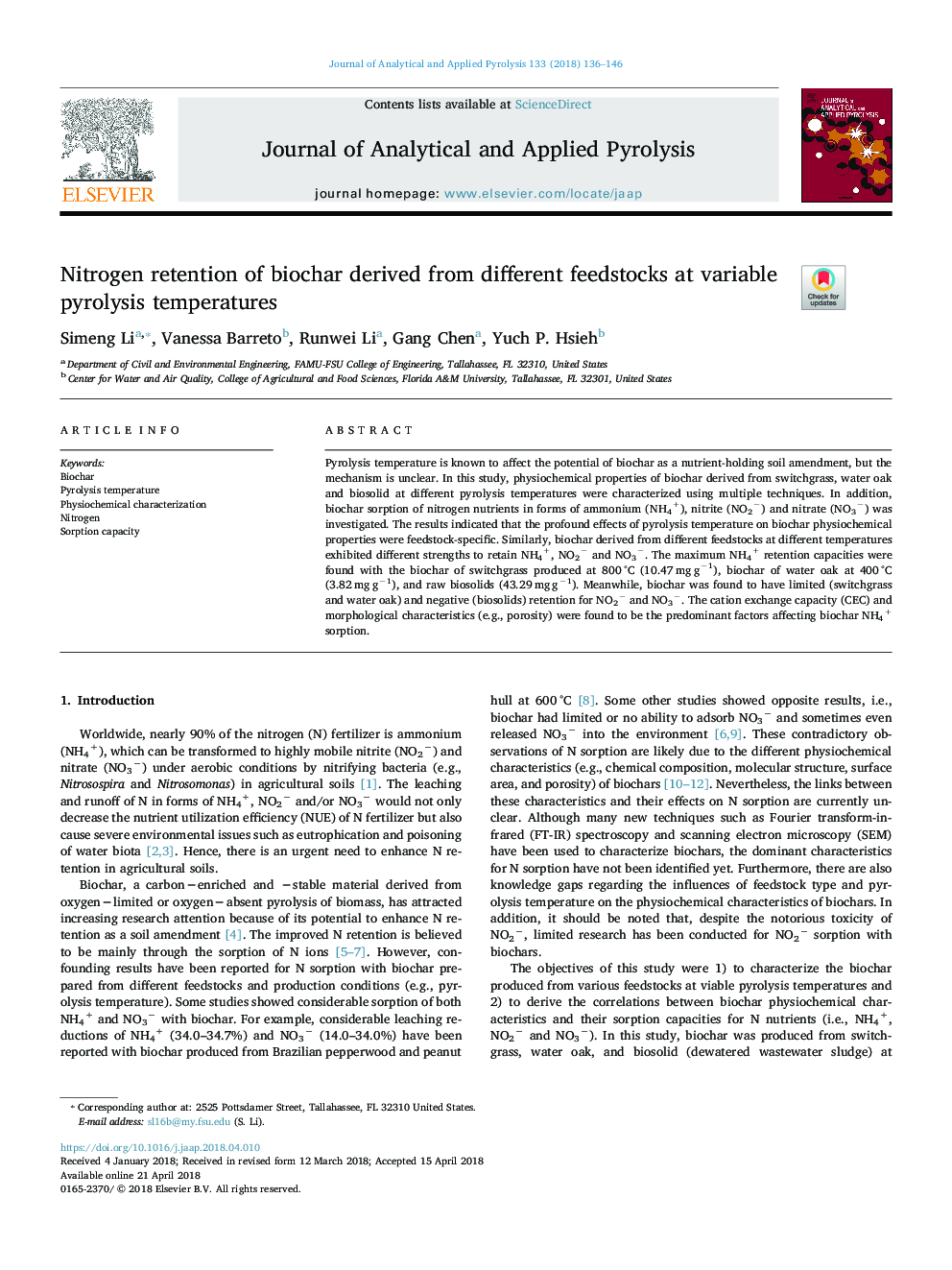| Article ID | Journal | Published Year | Pages | File Type |
|---|---|---|---|---|
| 7606257 | Journal of Analytical and Applied Pyrolysis | 2018 | 11 Pages |
Abstract
Pyrolysis temperature is known to affect the potential of biochar as a nutrient-holding soil amendment, but the mechanism is unclear. In this study, physiochemical properties of biochar derived from switchgrass, water oak and biosolid at different pyrolysis temperatures were characterized using multiple techniques. In addition, biochar sorption of nitrogen nutrients in forms of ammonium (NH4+), nitrite (NO2â) and nitrate (NO3â) was investigated. The results indicated that the profound effects of pyrolysis temperature on biochar physiochemical properties were feedstock-specific. Similarly, biochar derived from different feedstocks at different temperatures exhibited different strengths to retain NH4+, NO2â and NO3â. The maximum NH4+ retention capacities were found with the biochar of switchgrass produced at 800â¯Â°C (10.47â¯mgâ¯gâ1), biochar of water oak at 400â¯Â°C (3.82â¯mgâ¯gâ1), and raw biosolids (43.29â¯mgâ¯gâ1). Meanwhile, biochar was found to have limited (switchgrass and water oak) and negative (biosolids) retention for NO2â and NO3â. The cation exchange capacity (CEC) and morphological characteristics (e.g., porosity) were found to be the predominant factors affecting biochar NH4+ sorption.
Related Topics
Physical Sciences and Engineering
Chemistry
Analytical Chemistry
Authors
Simeng Li, Vanessa Barreto, Runwei Li, Gang Chen, Yuch P. Hsieh,
